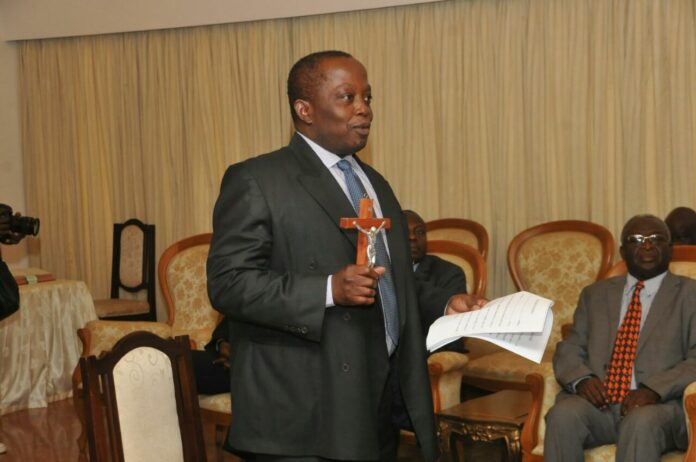Daniel Yaw Domelevo, a former Auditor-General, thinks it is too early for the Special Prosecutor to be frustrated, citing the latter’s recent press conference where he stated his suspicion of a Judiciary gang up against his office.
He says it is not possible that all the judges could be disinterested in the cases he files, thereby dismissing them without basis.
According to Mr. Domelevo, the fact that the OSP goes to court and loses, is not an indication that some powers that be are scheming against the office.
Citing his own experiences for example, he noted there were times he surcharged and disallowed some persons who took him to court and won. That, he said, was not an indication that the courts were against him, but rather saw it as two separate institutions discharging their duties.
“He may not get what he wants, but it’s too early for him to be frustrated, because I think that even if all the judges are not interested in fighting corruption, we may have some of them who may be interested; and if they’re correcting you…Remember when I was Auditor-General I disallowed and surcharged some people; they went to court and they won the cases, and I was not disturbed by that because, to the best of my knowledge, I was doing my work and the courts were also doing their work,” he said on Accra-based JoyNews.
“So, he [Special Prosecutor] should do his work as a prosecutor and allow the court also to do its work. But I think it’s too early for us to conclude that it is frustrating him” he added.
Meanwhile, he sided with the Speaker of Parliament’s assertion that the OSP establishment has been in futility. Despite seeing the comments as troubling, he said some provisions he came across in the Act made him doubt how well the Office can perform its assigned role.
“When I heard what the Speaker had to say about the OSP, I was disturbed because I asked, so if it is an exercise in futility, which means that it is useless, then where are we headed?
He added, “And after that, I started a bit of research so I read the law, and what I found under Section 4, sub-section (II), to me is very disturbing. It reads: subject to Clause 4 of Article 88 of the Constitution, the Office shall for the purpose of this Act, be authorised by the Attorney-General to initiate and conduct the prosecution of corruption and corruption-related cases, which means that the Office is not as independent as we were made to believe, so the mandate still rests with the Attorney General,” he said on Accra-based JoyNews.
He noted the lack of distinction between the OSP and other existing anti-corruption agencies, asking “so, the question which came to my mind is, how different is this office from EOCO and maybe CHRAJ and other institutions? So, it’s really sad.”
He, however, indicated that despite the Office’s inability to make prosecutions as expected by Ghanaians, the role it has played so far is enough to deter corruption to an extent.
“But let me also say that the effect of what the OSP and for that matter, any of the anti-corruption offices are doing may not result in prosecution and conviction as expected by Ghanaians. But the mere investigation itself even brings about some deterrence. Imagine seizing your assets and going to court to go and confirm it so that they can do their investigation, and this is in the public domain; that alone brings some deterrence, but I don’t think it is good enough for us,” he stated.
READ ALSO: Domelevo reacts to Special Prosecutor’s lamentations about Judiciary













